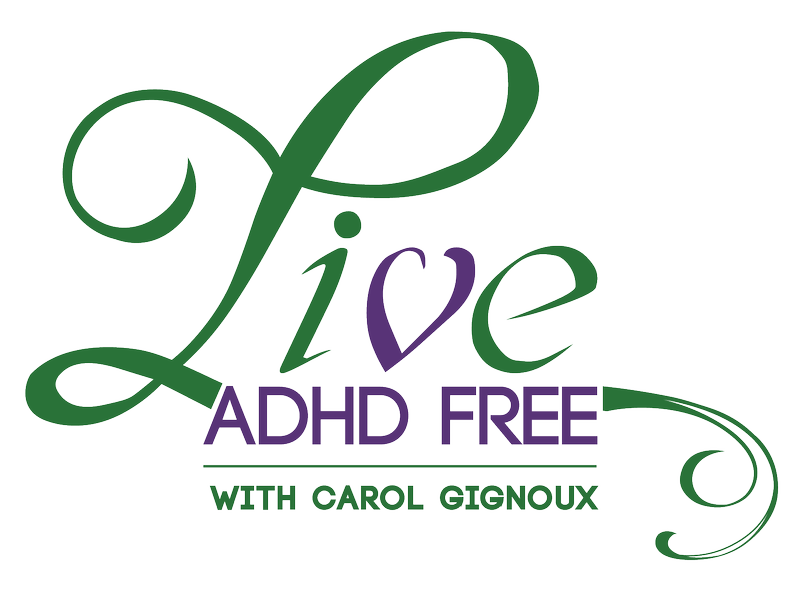Exploring the reality of ADHD teens and young adults
In the spirit of going back to school, now is a great time to go back to basics in the conversation about ADHD in preteens, teens and young adults. It is estimated that at least 11% of children 4-17 years of age (6.4 million) have been diagnosed with ADHD. The true numbers are likely much larger.
The technical definition of ADHD
The definition of ADHD has changed a lot over time. Currently the accepted explanation is that those with ADHD have less dopamine in their brains than others. Since dopamine is responsible for mental stimulation, reward, and interest, those with ADHD are under-stimulated. There are benefits to this, like the estimation that ADHD minds process new thoughts 10x faster than other brains. There are also downsides, which are the effects that usually get emphasized the most when discussing ADHD. Technically, the decreased dopamine impacts the performance of the “executive functions,” like:
- Sustained attention
- Lack of punctuality
- Self-directed work
- Easily controlled tempers
- Articulate communication skills
Any regular reader of our blog knows we strongly dislike focusing on the negative. When does pathologizing and labeling people ever really help anyone? Slapping a “disordered” sticker on a teenager does more harm than good. It substantially affects a student’s emotional development and level of confidence. As I’ve discussed in the past, I think the unusual gifts that come from our different brain mechanisms outweigh the negatives.
The external signs of ADHD in teens and young adults
Everyone probably has an image of the stereotypical ADHD student in mind. But we’re going to focus on the facts. Kids with this brain type typically have issues revolving around task management:
- Incorrectly estimating how long it will take to study
- Getting caught up with other activities and missing appointments
- Leaving work completion until the last second and relying on adrenaline to meet the deadline (or sometimes logging an all-nighter and still missing the deadline)
Another group of effects from the ADHD brain can be grouped around distraction. It is very important to remember that distraction and incompetence are two different things. In fact, often an ADHD student is distracted because the lesson is too easy. In other instances the lecture-style, reading-heavy class structure clashes with the student’s learning style. The student never digs into the material in the first place and ends up falling behind. The instinct to seek new entertainment or stimulation is high and is probably still not under the student’s control. This leads to frequent interruptions. In male students, this can take the form of outbursts, while female students might more often be labeled as day-dreamy.
The internal effects of being labeled ADHD
On a social level, too often these teens stick out as “different” and can sometimes be easy targets for bullies. Yet, in terms of the causes of self-loathing in young people, bullying is just the tip of the iceberg. Even with compassionate fellow students, there can be tension, as the “normal” kids feel confused by the ADHD student’s different learning style and impulsivity.
Additionally, these students can be marginalized by the one-size-fits-all educational system. The rigid structure often doesn’t have the flexibility to accommodate rapid-firing brain types. Even though we know that bringing out the best in kids and young adults with this brain type can create a group of high-achieving Innovators.
Alternatively, students become intensely aware of being “different,” and in middle and high school different equates with “bad,” “stupid,” and “wrong.” Students then get emotionally stuck in this negative space. They stop trying. They stop believing in themselves and don’t understand what’s going on. They’ve lost faith in themselves and their ability to do the work. There are a lot of kids, too many, in classrooms in this country that are sitting there and suffering. These kids are suffering because they’re not getting the support they need, and they think it’s their fault.
The lasting effects on students of how ADHD is handled
The school years are a very formative time. Unfortunately, many ADHD students don’t get the nurturing support and guided self-reliance that they need from compassionate teachers and parents. Few ever have the opportunity to work with a trained ADHD Coach. Without this support network, students can be overwhelmed by social and academic stress. This may lead to toxic coping mechanisms. In that situation, the secondary indicators of ADHD can become hard to control, like anger response, frustration, and impatience.
The good news is that middle and high school can be a fantastic time for ADHD students under the right circumstances. For a student with ADHD, it can be an environment where he or she learns to maximize strengths and solve problems with the special gifts of the Innovator Brain.
For help with your ADHD teen, consider our teen coaching program or our ADHD college prep coaching, which prepares students for college and beyond.
Will ADHD Affect Your or Your Teen’s College Success?
 College is a completely different world from High School. The level of stress is higher and the level of support can be lower. How well you or your teen manages ADHD symptoms and behaviors in this new environment can lead to college success, struggle, or failure. Take the ADHD and College Success Quiz to find out whether your or your teen’s ADHD management is at the level it needs to be to reach college success goals.
College is a completely different world from High School. The level of stress is higher and the level of support can be lower. How well you or your teen manages ADHD symptoms and behaviors in this new environment can lead to college success, struggle, or failure. Take the ADHD and College Success Quiz to find out whether your or your teen’s ADHD management is at the level it needs to be to reach college success goals.


Pingback: Benefits of ADHD Coaching for Students | Live ADHD Free